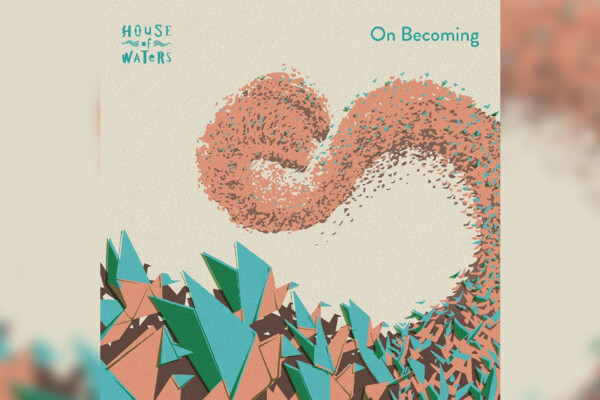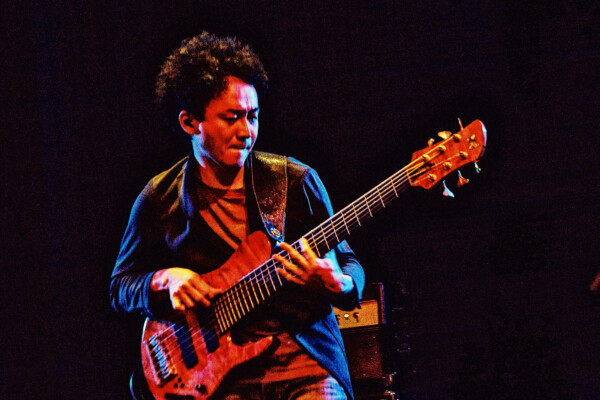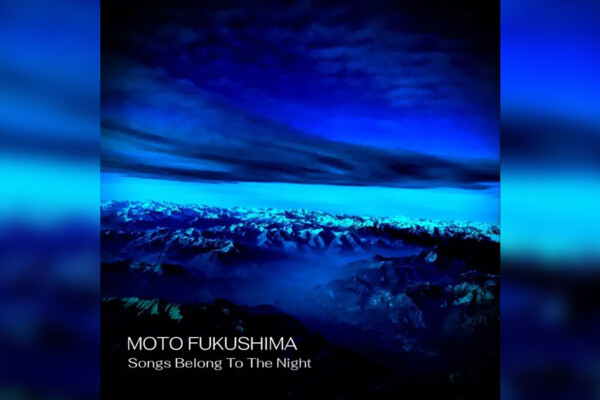House of Waters: An Interview with Moto Fukushima
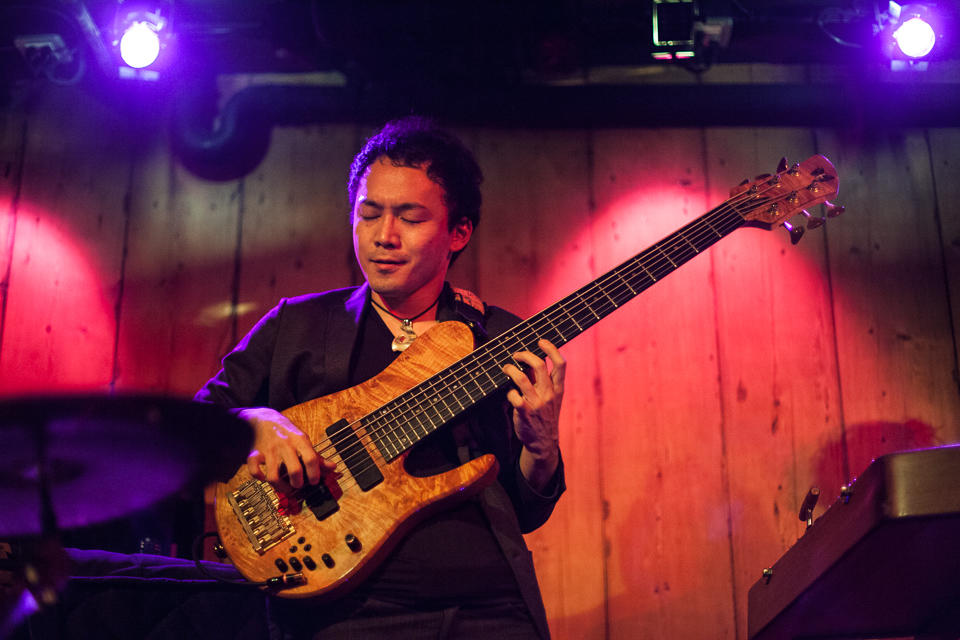
Typically we think of a power trio as guitar, bass, and drums, but House of Waters isn’t your typical power trio. The trio mixes things up with Max ZT on hammered dulcimer, Ignacio Rivas Bixio on percussion, and Moto Fukushima on bass.
Fukushima was born and raised in Japan, moving to the United States in order to pursue a jazz education. As a member of House of Waters, the six-string bassist covers a lot of melodic and harmonic ground, all while remaining sensitive and supporting the song.
The band’s sound is best documented on their latest self-titled album. Fukushima kept busy on his own, as well, releasing the jaw-dropping solo album, One, last summer.
We caught up with Fukushima to get his background, his approach to playing in House of Waters, and his writing process.
We’ve introduced you through some videos we’ve posted before, but I’d like to get some more background on you. What part of Japan did you grow up in?
I’m from Kobe. It’s next to Osaka, which is the second biggest economic area in Japan.
When did you first get into bass?
Well, I started with piano because my mom was a piano teacher. So I studied at a very young age, but I didn’t like it very much. Studying with your mother can be tough as a kid. Then I begged my mom to buy me a guitar when I got to junior high school, around ten or eleven years old. When I went to high school, there was no bass player and since I could play guitar and piano I figured, “The bass looks easy, let me try it.” Once I got into it I realized the instrument looks simple but was way harder than other instruments, but I loved it much more. I was around 15 or 16 then.
What kind of music were you into? What bands did you like?
I was playing rock. Mr. Big was so huge in Japan back then [laughs]. I was transcribing Billy Sheehan stuff. It actually helped me because I worked on my fingers back then a lot, which is helping me a lot right now.
What got you into jazz?
I was really into rock music, but then my uncle gave me a CD of Jaco Pastorius’s first album. I thought, “Ok, this is something totally different.” At first I thought the harmony was very dissonant, but it felt very nice. That got me listening to more jazz like John Coltrane and Keith Jarrett, and I decided I really wanted to study this music. I thought, “I should go to the U.S. [to study jazz].” Then I took the scholarship audition to Berklee, so then I went to Berklee.
Was it a big shock to your system to be in the U.S. and studying around all those other musicians?
Yes. I had studied jazz a little bit, but I had no idea. I could play. I had techniques and knew music harmony, but I never studied jazz in Japan. That was a huge thing. I also didn’t speak English fluently in the beginning, so I had to study English and music at a college level and all these other things. But it all happened at the same time so I didn’t have time to hesitate or get depressed. I just had to do whatever I had to do, so it was nice actually. I had no choice [laughs].
Who were you studying with at Berklee?
For bass teachers, I had David Clark and Bruno Roberg, who are both double bass teachers. David Clark was amazing at classical composition stuff and 20th century harmony concepts. He taught me about that and I tried to adapt those concepts into my improvisations and compositions. Bruno is a nice, contemporary double bass player. I don’t play double bass that much, but I love to study with those people. Mainly I played jazz in college, and I stuck to electric.
Did you make the switch to six-string bass in college?
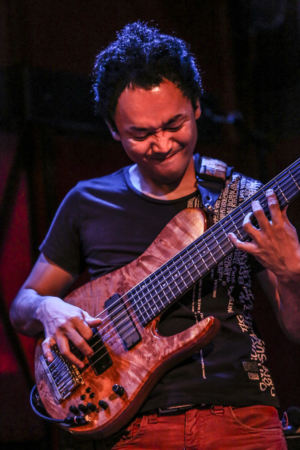 I got my first six-string when I was in Japan, actually. My friend had an old Tune bass and said, “I don’t need this. Do you want it?” I said, “Ok, sure” and bought it for $200 or something like that. I didn’t intentionally set out to play six-string bass, but it was very natural since I played piano and guitar. I’m always hearing a wider range than the four-string bass.
I got my first six-string when I was in Japan, actually. My friend had an old Tune bass and said, “I don’t need this. Do you want it?” I said, “Ok, sure” and bought it for $200 or something like that. I didn’t intentionally set out to play six-string bass, but it was very natural since I played piano and guitar. I’m always hearing a wider range than the four-string bass.
How did House of Waters come about?
We formed about nine years ago after I moved to New York City. New York has a unique world music scene. Many people play South American and Latin music and African music, so they play a lot of interesting or unfamiliar instruments. Max played hammered dulcimer, another friend of mine played the kora from Africa, so there was a certain scene like that. One of the groups had a regular gig at a restaurant in the Lower East Side. One day, the bass player couldn’t make it so my friend gave me a call to fill the position, and I actually got the gig from that day.
That was kind of the start of House of Waters. We had two percussion players, an oud player, Max on dulcimer, and a bass player. It was kind of a jammy band doing the world music concept with interesting instruments. Then we kept doing that gig and decided to write more originals since the band had such an interesting sound. Our first album was with the five piece, seven or eight years ago. Eventually we switched to being a trio.
I’d imagine that opens up a lot more possibilities for you on the bass.
Exactly. It’s challenging but very fun.
Was there a big learning curve to jump into that?
Well I love the trio setting – guitar trios, piano trios… There’s so much space for you to do things on bass. But with dulcimer and percussion, to be honest, it was really challenging. Percussion fills out quite nicely with a drum set, but it might get empty here or there. With dulcimer, it has such a beautiful sound but it’s not like a piano or guitar. He can’t do certain voicings or melodies. It’s very limited. So I didn’t know how to connect every piece together. I’m still struggling, but I try [laughs].
So do you more often play the extensions of chords?
Yes. Also, dulcimer has a very strong sound. When he plays a note, sometimes he cuts it but normally it just rings. It’s like a foot pedal on a piano. I have to choose notes very carefully when I’m creating my voicings, because there are lots of frequencies and harmonics going around.
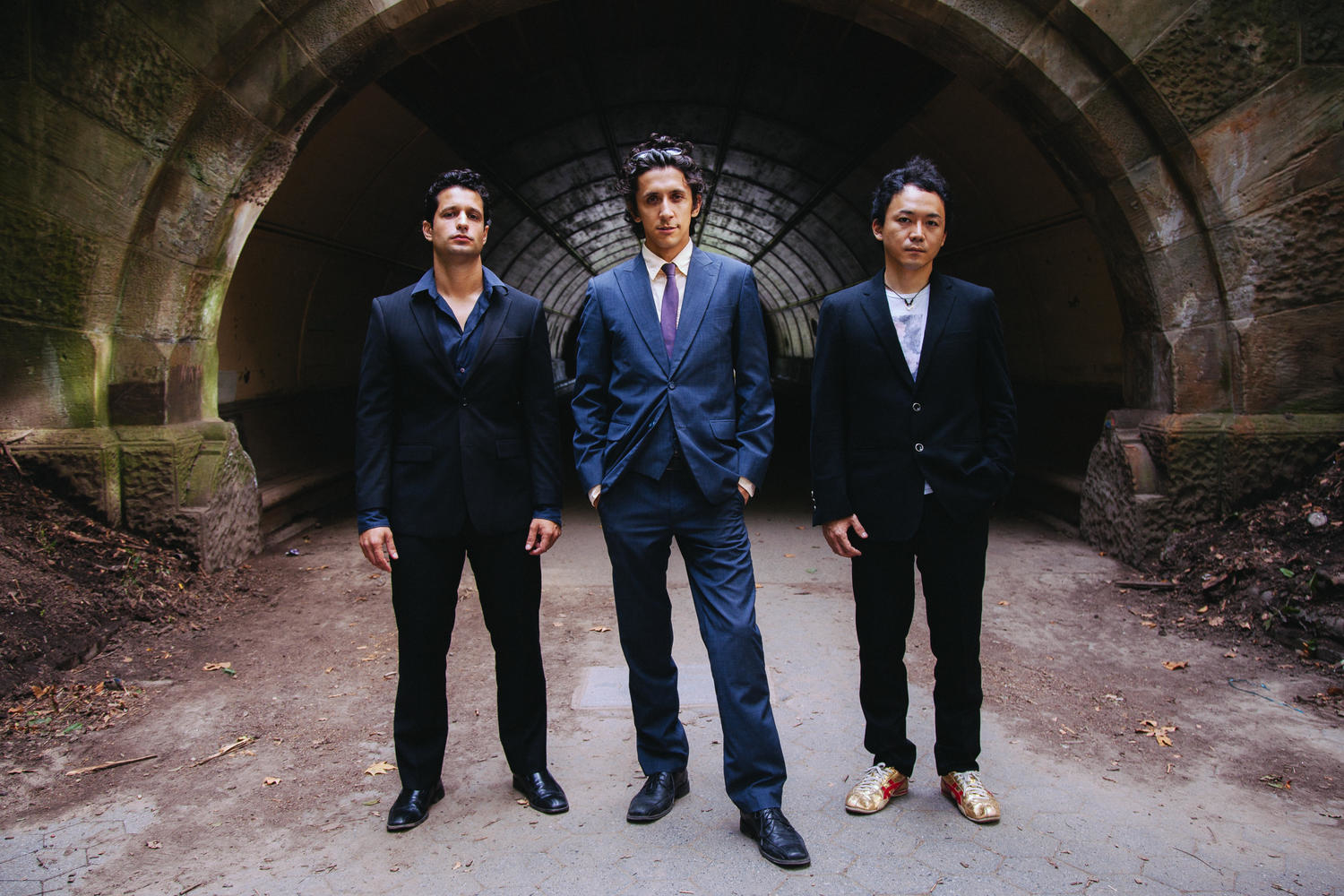
I saw a video of you guys playing in the subway, which must have been awesome for riders. Did you do that a lot?
We used to. It was kind of nice income, to be honest. We sold a lot of CDs in the subway. It’s good training, and we’d say it’s like a paid practice. The New York subway has a good system, so it’s not like you just show up and play. The city organizes a schedule for location and time. We haven’t done it though in about three years.
The new album is fantastic. What is the writing process like for the band?
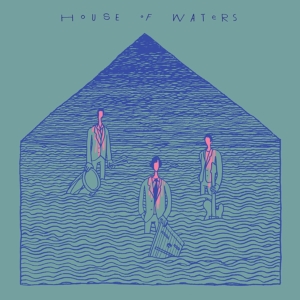 When I compose, I use the six-string bass. It’s quite a nice instrument to compose on, I think. I wrote one song with two cellos and a flute and a clarinet. It’s more like classical chamber stuff. I wrote the basic idea on bass but for certain voicings I needed to play on a piano, so I followed up on piano.
When I compose, I use the six-string bass. It’s quite a nice instrument to compose on, I think. I wrote one song with two cellos and a flute and a clarinet. It’s more like classical chamber stuff. I wrote the basic idea on bass but for certain voicings I needed to play on a piano, so I followed up on piano.
Those are my compositions, but as a band everybody can bring a small idea and then we just play a lot with them. Harmony and that kind of stuff I need to work on at home. Some of them are just us playing and throwing ideas, sometimes making happy mistakes.
How much of the band’s music is improvised?
I don’t know the actual percentage of improvising to fixed parts. For me as the bass player, I’m free to play the lines as I want. My part is probably 30 percent fixed and 70 percent improvised, including the bass lines and solos. Max’s instrument is kind of different, so he has a different approach, but he studied Indian music which is basically improvisation-based. He also studied African music in Senegal, which is also improvised music. He has an improv-mindset, but he probably has a higher ratio of fixed parts than me, I think.
You’ve mentioned that “Francesco” is a particular favorite off the new album. Can you give us a little background about it?
Francesco Guaiana is my friend from Berklee. He’s from Italy and he’s an amazing guitar player and composer. I had a certain opportunity to play with him in the school, and sometimes he comes down here to New York. He’s really amazing. I just wanted to dedicate something to him because he is a big influence to me.
What led you to put together your solo album?
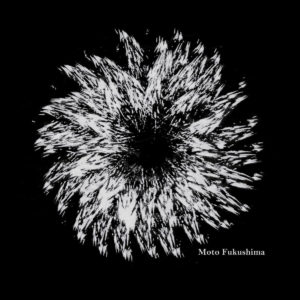 I got the idea like ten years ago, and I started to record ten years ago. Then every year I’d say, “Yeah, I’m gonna release my solo album this year!” [laughs] You can do it all yourself at home, so it’s pretty chill. I’m kind of lazy so it took me a while to get around to it.
I got the idea like ten years ago, and I started to record ten years ago. Then every year I’d say, “Yeah, I’m gonna release my solo album this year!” [laughs] You can do it all yourself at home, so it’s pretty chill. I’m kind of lazy so it took me a while to get around to it.
I think it’s nice to play something by yourself. I did some overdubs on the album, but it’s all just me. I’m very happy with group performance and I’m quite lucky to play with amazing musicians here, but on the opposite side I wanted to see how much I could do by myself. I wanted to measure that. Anyways, it took ten years for me to finish it. Some of the recordings are really old, back about ten years. Some are newer, too. I have about 100 recordings and picked out ten. I have enough to start getting my next album ready, too.

